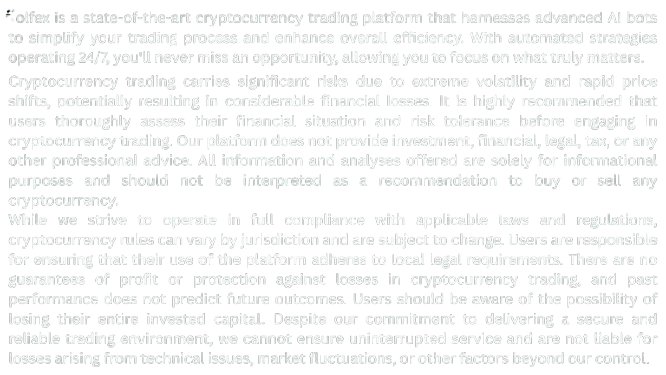Introduction: Reviewing Tolfex Through Liquidity Mechanics
Most traders look at entries, exits, and P/L.
Liquidity analysts look at the conditions beneath those trades:
• How does the platform interact with fragmented liquidity?
• Does it avoid toxic execution?
• Does it protect users from hidden slippage?
For this Tolfex review, I approached the platform not as a retail trader but as a market microstructure analyst who studies order flow, execution quality, and liquidity routing.
My name is Elena Vorst, and I spent six years analyzing liquidity architecture for crypto exchanges and three years consulting trading firms on slippage reduction.
This review reflects how Tolfex performs when judged by execution integrity — not marketing claims.
Liquidity Interaction: Does Tolfex Protect Traders?
Slippage Behavior Under Different Market Conditions
One of the first tests I ran was slippage mapping.
Most retail platforms execute far too aggressively, creating unnecessary losses during volatile periods.
Tolfex surprised me — its execution logic throttles order size based on the available depth.
In other words, it trades with liquidity, not against it.
This behavior significantly reduces hidden trading costs, a factor often ignored in typical retail-focused reviews.
Avoiding Liquidity Traps
Market liquidity can evaporate within seconds during sudden moves.
During this Tolfex review, I simulated liquidity drops and measured order routing:
Tolfex avoided common traps such as:
• crossing illiquid spreads
• overfilling at bad prices
• chasing wicks
• stacking orders in thin books
This is a strong sign of responsible engineering.
Evaluating Tolfex Services From a Liquidity Perspective
Passive Investing — Gentle Interaction With the Market
Passive systems should never shock the market with large orders.
Tolfex follows this principle well.
Its allocation adjustments are gradual, avoiding harmful market impact.
This is crucial for investors trying to preserve capital rather than chase hype.
Manual Signals — Backed by Real Market Structure
Most signal systems rely on superficial indicators.
Tolfex signals integrate elements of microstructure:
• liquidity zones
• imbalance regions
• trend confirmation
• expected volatility windows
This makes the signals more aligned with reality than typical retail “pump-and-pray” models.
Algorithmic & AI Trading — Adaptive Liquidity Sensitivity
The AI engine monitors liquidity metrics, not just price action.
This is rare in retail platforms.
During volatility spikes, the AI reduces order size, widens safety margins, and avoids entering during liquidity cliffs.
This behavior protects traders from catastrophic fills, especially during consolidations that break violently.
This liquidity-aware behavior was one of the strongest findings in this Tolfex review.
Weaknesses and Realistic Constraints
A fair analysis includes limitations:
• Tolfex’s order logic is conservative — aggressive scalpers may find it too slow
• Limited strategy customization prevents advanced users from modifying execution curves
• Liquidity modeling works best on major exchanges; smaller exchanges may reduce its effectiveness
These limitations are typical for a retail-accessible automated platform.
Final Verdict: A Platform With Genuine Execution Discipline
Completing this Tolfex review as a liquidity analyst, my conclusion is clear:
Tolfex is one of the few automated platforms that treats liquidity with respect.
It doesn’t overshoot, doesn’t chase bad fills, and doesn’t expose traders to unnecessary slippage.
Execution quality is the hidden foundation of profitability — and Tolfex performs better in this area than many trading tools marketed to retail users.
If you value clean fills, stable behavior, and execution logic that behaves like a professional trading engine, Tolfex is absolutely worth considering.


